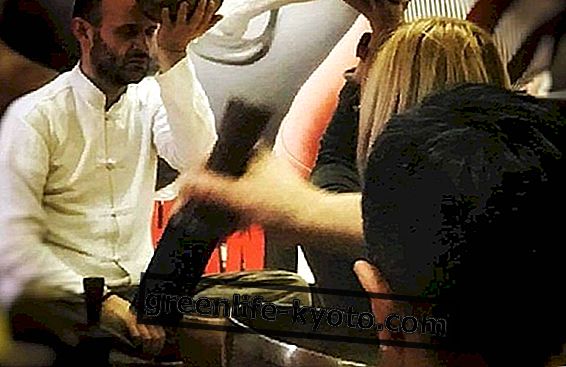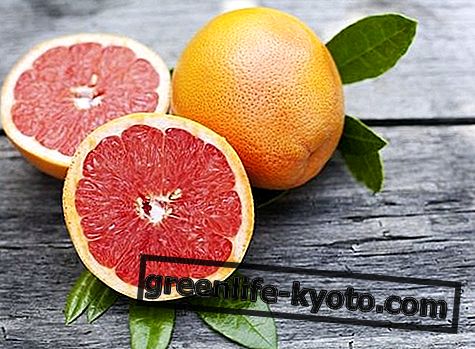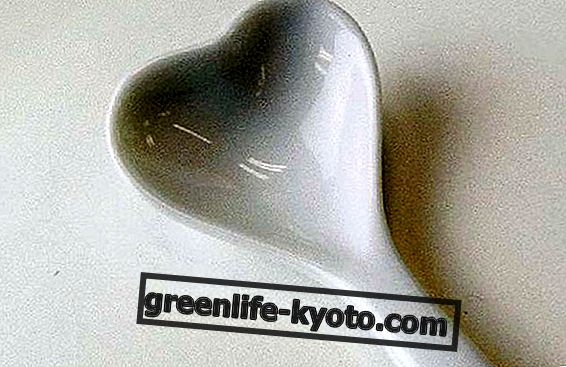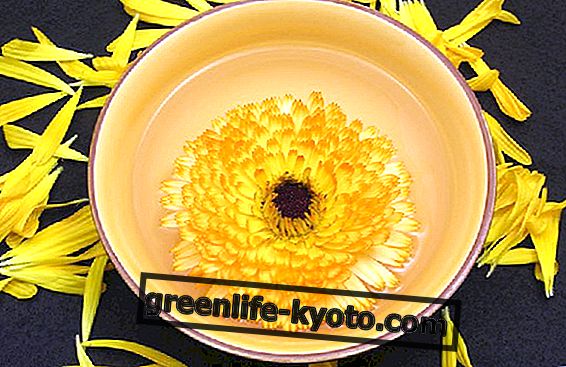
Today many are approaching vegetarian food for different reasons. This occurred in particular as a result of the alarm raised by the "mad cow disease" (BSE). However, for some time there had been other reasons of concern for various forms of pollution due to the use of various chemical substances in animal breeding, genetic manipulation, etc.
As the American economist Jeremy Rifkin, author of successful essays in his latest book "Ecocide - rise and fall of the culture of the flesh" (ed. Mondadori) explains very well, we are witnessing the crisis of the Western world and its predatory culture that among other things it causes enormous waste of cereals used in animal nutrition, as well as food problems of obesity, cardiovascular diseases, tumors, etc. among the people. All this while neglecting the fact that most of the world population suffers from hunger or in any case cannot feed themselves sufficiently, with the social and cultural problems that this inattention entails, in the form of revenge, envy, hatred, towards the West (which calls itself Christian), whose symbols of power are affected.However, it is not enough to know this to become vegetarian overnight!
As a vegetarian psychologist and a scholar of brain functions, I would like to make a contribution to those wishing to approach this change in diet and lifestyle. First and foremost it should be done for one's own reasons and after becoming aware of these problems, as well as the suffering of animals, which is often little known and considered by consumers as little is known about breeding, transport, slaughtering, experimentation to which animals are subjected and which, if seen directly, would make many of us cringe.
We should therefore become more deeply aware of all this to find the right motivation that is not only due to fear or doubt.
Those who have doubts should ask themselves: "Is it right to eat meat and fish? Are they really such essential and beneficial foods as many doctors say?"
Don't give yourself quick answers but just let these questions act on you, which causes the search for the right answers in the brain.
In fact, recent studies on the right and left hemispheres of the brain (Trimarchi 82) we learn that the left hemisphere is fast and schematic in the response as it must serve to react to situations of practical need and danger, vice versa the right hemisphere it is slower, but objectively and precisely perceives reality and always looks for more creative and flexible solutions to the situations we are faced with that are always different from one another.
Suffering, if strong, does not find answers in the left hemisphere, which is fast but rigid and that draws on patterns stored in the past and defends them. This often allows more space to be given to the right hemisphere which has not developed verbal language like the left, but gives its contribution with reflection, intuition, images, sensations, emotions, dreams, which occur with time longer and quieter and precede the more original and profound answers.
Those who feel right about leaving meat and fish should take this as a goal to be achieved gradually. This is because, depending on how long and how often and how much meat has been taken from the body, one is used to it and abandoning it all at once can lead to health problems, due to the difficulty of absorbing the necessary substances from other foods, or even psychological problems, to break away from the usual flavors by repressing desires.
Important is the decision free from the pressures of others, since this could provoke a rejection and a return on one's own footsteps not being deep and meditated.
The decision and the programs take place in the frontal lobes of the brain that are free from conditioning, that is pleasures or sorrows linked to certain situations or stimuli due to past experiences that tend to repeat themselves automatically if not held back by the conscious and determined will, with the right motivation and with useful goals. The evaluation of objective reality on the basis of physiological and scientific information makes it possible to make these decisions and repeat them again, overcoming old programs in the brain and replacing them with new ones recognized as right and useful. One does not act in this way either by imitating models or by opposing them, but through the evaluation and the conscious decision and then the experimentation on oneself which gives proof of how one feels and what is good for us.
Respecting the physiological detoxification, habituation and deconditioning of the organism also allows to avoid "food fanaticism", as well as the judgment towards those who still eat it with pleasure, also developing understanding, having spent time and effort to overcome old ones habits. This also prevents psychosomatic disorders, due to repression that can range from anxiety with possible somatic manifestations, to weight loss, to compensating for other things, to nervousness, to mineral deficiencies, vitamins, etc. substances necessary also for the nervous system.
Therefore basic information on the minimal physiology and vegetarian diet must be acquired, in order to make the transition without too much intellectualism but not even too much superficiality or tendency to follow fashions, starting from what we already recognize and deepening what intrigues us and that we miss it in order not to make mistakes. In fact, there are specific indications for those who change their diet to avoid deficiencies and to give the body the necessary help (see the AVI bibliography in this regard -www.vegetariani.it).
On the basis of the integration between anthropological studies on all peoples and neurophysiological on the higher functions of the brain it results that the person's conscious ego develops in the awareness of what is right and useful and is based on universal values present in all men of any religion or political or philosophical idea are: freedom, love and respect for the value of life in itself and for the dignity of every living being, a sense of justice, a search for balance with natural laws.
The positive result of the attempt to become a vegetarian in a stable manner is obtained if you have patience, perseverance and adequate knowledge, but also with the help of those who have already taken the path or are doing it and the times and methods vary from person to person.
From: "The vegetarian idea", AVI magazine n.136 Apr./Mag. 2002













